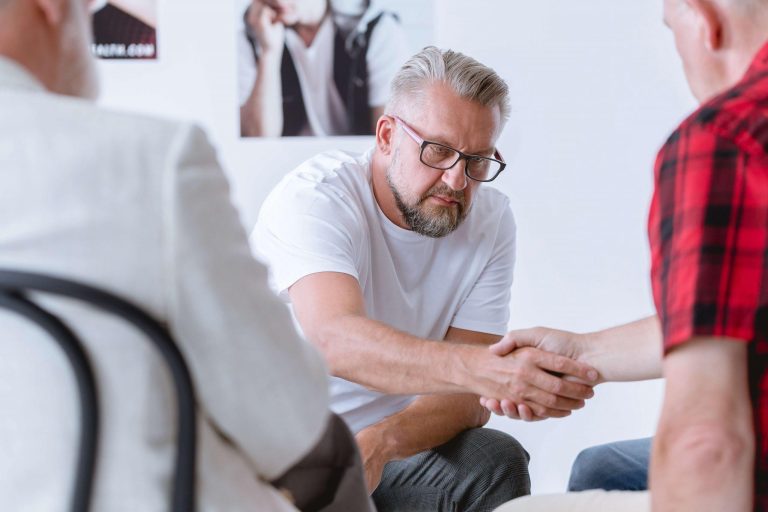Why Does Alcohol Mess With My Sleep? The New York Times
Do this with every drink you have in order to keep yourself honest. In a notebook, keep track of how many drinks you have each day, and rate your overall anxiety, depression, and sleep quality. It both increases dopamine levels (leading to feelings of euphoria) and inhibits excitatory neurotransmitters, which slows down your brain functioning. The slowing down of the excitatory neurotransmitter is how alcohol acts as a depressant. Once dopamine levels go back to normal, we’re still left with a depressed system, which often leads to another drink to get the dopamine levels back up.
Like nearly all of the body’s organs, the liver functions according to circadian rhythms. Alcohol interferes with these circadian rhythms regulating the liver, and can contribute to compromised liver function, liver toxicity, and disease. Research on older adults, https://ecosoberhouse.com/ aged 50 and older, found those who binge drank two days or less a week had 35% greater odds of insomnia compared to non-binge drinkers. Those who binge drank two days or more a week had a 64% greater chance of insomnia compared to non-binge drinkers.
So can you use alcohol to help you sleep?
You may also experience parasomnias which are disruptive sleep disorders that occur in specific stages of sleep or in sleep-wake transitions. These can happen during arousals from rapid eye movement (REM) sleep or non-rapid eye movement (NREM) sleep. A new study assesses the effect of alcohol consumption on the restorative quality of sleep. The findings might make you want to change your drinking — and implicitly, your sleeping — habits.
Swapping in a non-alcoholic drink that you reserve for happy hour can often stand-in effectively for alcohol. Reading a book, taking a bath, connecting with a loved one, or even just going to bed early are all proven anxiety relievers. By combining bananas and almond milk in a smoothie, you can really pack in a powerful tryptophan and melatonin punch that might help reduce symptoms of insomnia.
Studying alcohol and sleep quality
There shouldn’t be shame or stigma about wanting to slow down or stop drinking because needing to do so isn’t the exception; it’s the rule. Announcing you need a drink when feeling stressed or worn out is usually met with enthusiastic agreement. Many of us take for granted that drinking eases anxiety and helps us relax in social settings or at the end of a hard day.
Exclusive: I have a rule that I’ll go to sleep after working for eight hours, shares Nana Patekar – Filmfare
Exclusive: I have a rule that I’ll go to sleep after working for eight hours, shares Nana Patekar.
Posted: Wed, 08 Nov 2023 08:22:56 GMT [source]
If you’re experiencing sleeping issues, whether related to alcohol consumption or not, consider talking to your health care provider or a sleep specialist. But the more someone drinks, the more significant the impact, said Meadows, pointing to a 2018 study in the journal JMIR Mental Health. “First of all, it increases our initial deep sleep, disrupting our sleep stages’ overall balance,” he said. If alcohol continues to disrupt your overall sleep quality, you may consider cutting it out entirely, or limiting your intake before bedtime. If you’ve stopped drinking alcohol, but are still having sleep issues, be sure to reach out to a sleep specialist. To help assess how alcohol may be affecting your sleep, experts recommend an alcohol-free reset period, or what Dr. Martin called “an alcohol holiday,” lasting at least two weeks.
How does alcohol affect sleep?
Take the Sleep Quiz to help inform your sleep improvement journey. His research and clinical practice focuses on the entire myriad of sleep disorders. If you’re planning on heading out for a night that will involve some drinks, there are some things you can do to help you sleep afterward.
Even if it doesn’t present as a full-fledged hangover, alcohol-related sleep loss negatively affects mood and performance. The most effective time of day for the body to metabolize alcohol, according to research? That’s right, the traditional “happy hour” time is actually when the body is most prepared to process that cocktail. If that mimosa with brunch hits you particularly hard, it may be the result of circadian timing. There’s a complicated relationship among depression, alcohol, and sleep. People suffering from depression may already have disrupted circadian rhythms, and the presence of even moderate amounts of alcohol may push those rhythms further out of sync.
How much alcohol affects sleep?
A great first step is to speak with a trusted loved one, a primary care doctor, or a therapist about your desire to make a change. So while cutting out drinking will likely benefit your sleep, there may be other factors affecting your shuteye. Circadian rhythms affect how the body responds to alcohol, depending on the timing of alcohol intake. Long-established does liquor help you sleep research shows the body metabolizes alcohol differently at different times of day. Studies have shown the body is more effective at processing alcohol at certain times of the day than others. The liver acts as a filtering system for the body, helping metabolize food and chemicals (including alcohol itself), and pulling toxins from the bloodstream.

